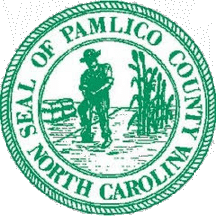PAMLICO COUNTY GOVERNMENT:
www.pamlicocounty.org
COUNTY SEAT: Bayboro
FORMED: 1872
FORMED FROM: Craven, Beaufort
LAND AREA: 336.54 square miles
2020 POPULATION ESTIMATE: 12,276
White: 77.6%
Black/African American: 18.9%
American Indian: 0.8%
Asian: 0.6%
Pacific Islander: 0.2%
Two or more races: 1.8%
Hispanic/Latino: 4.3% (of any race)
From State & County QuickFacts, US Census Bureau, 2020.
CONGRESSIONAL DISTRICT: 3RD
BIOGRAPHIES FOR![]()
Pamlico County
 WILDLIFE PROFILES FOR
WILDLIFE PROFILES FOR
Coastal Plain
GEOGRAPHIC INFORMATION
REGION: Coastal Plain
RIVER BASIN: Neuse, Map
NEIGHBORING COUNTIES: Beaufort, Carteret, Craven

Pamlico County, located in the Coastal Plain region of North Carolina, was formed in 1872 from Craven and Beaufort Counties and named for the Pamlico Sound, which, in turn, was named for the Pamlico Indians. It partially borders the sound and the Neuse River. Early inhabitants of the area included Algonquian Indians, followed by English, Welsh, Swiss, German, and French settlers. Bayboro, the county seat, was incorporated in 1881 and named for the Bay River (itself named for the bay tree, which abounds in the area). Other Pamlico County communities include Arapahoe, Minnesott Beach, Stonewall, Vandemere, Mesic, Hobucken, Olympia, Oriental, and Pamlico. Notable physical features of the county, other than its coastline, include Cedar Island, Deep Run, Dawson Creek, and Bay City Pocosin.
Pamlico County's economy is based on tourism and recreation, especially fishing, owing to its coastal location. Oriental, which is known as the "Sailing Capital of North Carolina," holds many sailing regattas, including the Oriental Regatta. The county also produces agricultural commodities such as cotton, tobacco, corn, potatoes, and soybeans.
Landmarks and historic sites in Pamlico County include the Grist Mill (ca. 1915) and Reel Cotton Gin (ca. 1905). The county is home to such cultural attractions as the Silver Hill Heritage Museum, Pamlico County Drama Clubs, and the Candycane Theatre, and notable among its annual festivals and events is the Pamlico County Croaker Festival. Camp Sea Gull and Camp Seafarer, summer camps run by the YMCA of the Triangle Area, Inc., have been hosted by Pamlico County since the mid-twentieth century. The county's estimated population was 13,000 in 2004.
Annotated history of Pamlico County's formation:
For an annotated history of the county's formation, with the laws affecting the county, boundary lines and changes, and other origin information, visit these references in The Formation of the North Carolina Counties (Corbitt, 2000), available online at North Carolina Digital Collections (note, there may be additional items of interest for the county not listed here):
County formation history: https://digital.ncdcr.gov/Documents/Detail/the-formation-of-the-north-ca...
Index entry for the county: https://digital.ncdcr.gov/Documents/Detail/the-formation-of-the-north-ca...
Additional resources:
Corbitt, David Leroy. 2000. The formation of the North Carolina counties, 1663-1943. https://digital.ncdcr.gov/Documents/Detail/the-formation-of-the-north-carolina-counties-1663-1943/3692099?item=4553233 (accessed June 20, 2017).
Pamlico County Government: https://www.pamlicocounty.org/
Pamlico County Chamber of Commerce
Pamlico County Historical Association: http://pamlicocountyhistorymuseum.com/
Pamlico County resources, NC Digital Heritage Program: https://www.digitalnc.org/counties/pamlico-county/
North Carolina Digital Collections (explore by place, time period, format): https://digital.ncdcr.gov
Image credits:
Rudersdorf, Amy. 2010. "NC County Maps." Government & Heritage Library, State Library of North Carolina.
1 January 2006 | Mazzocchi, Jay
